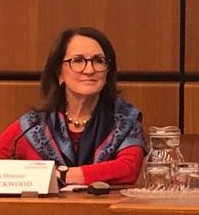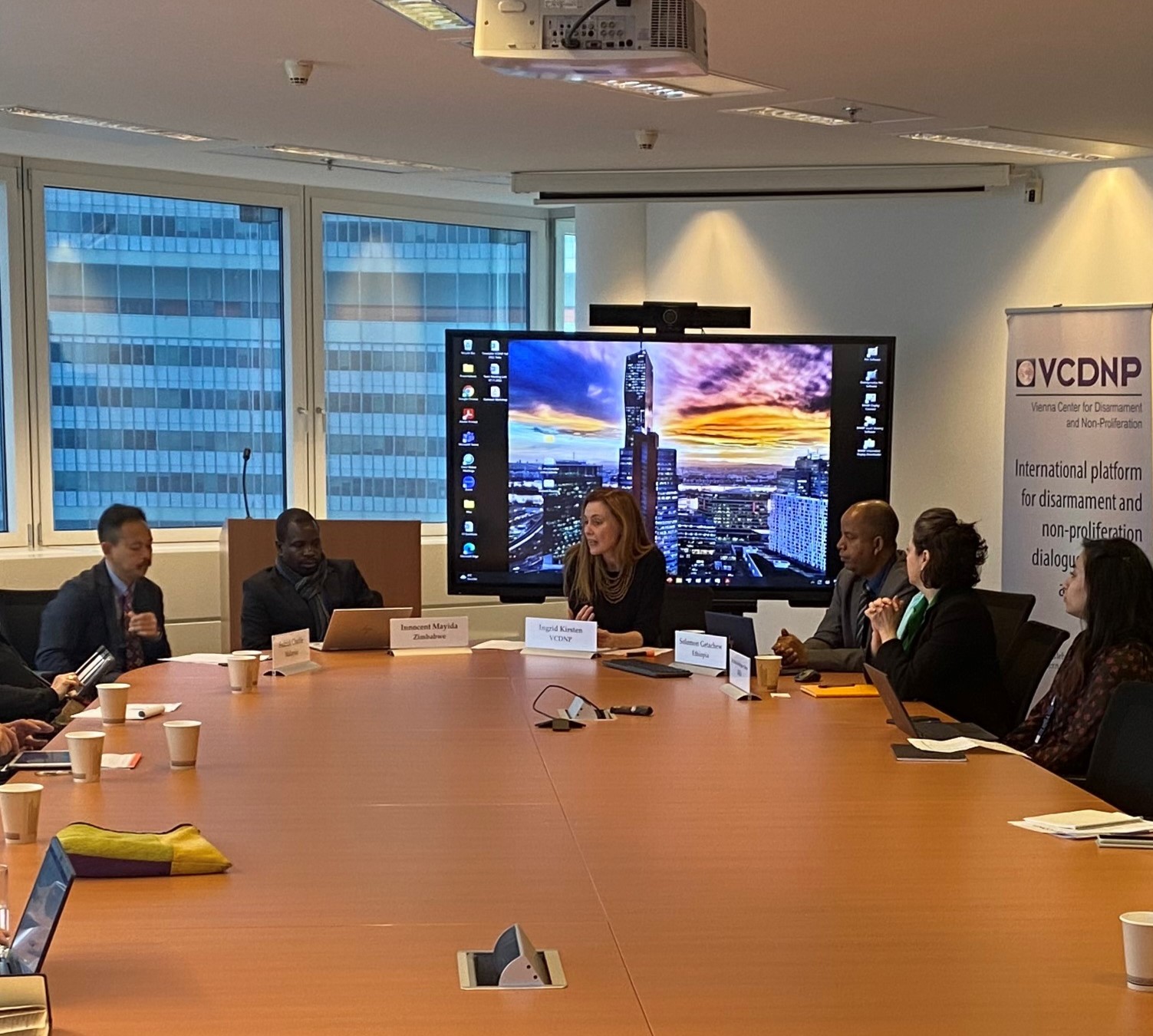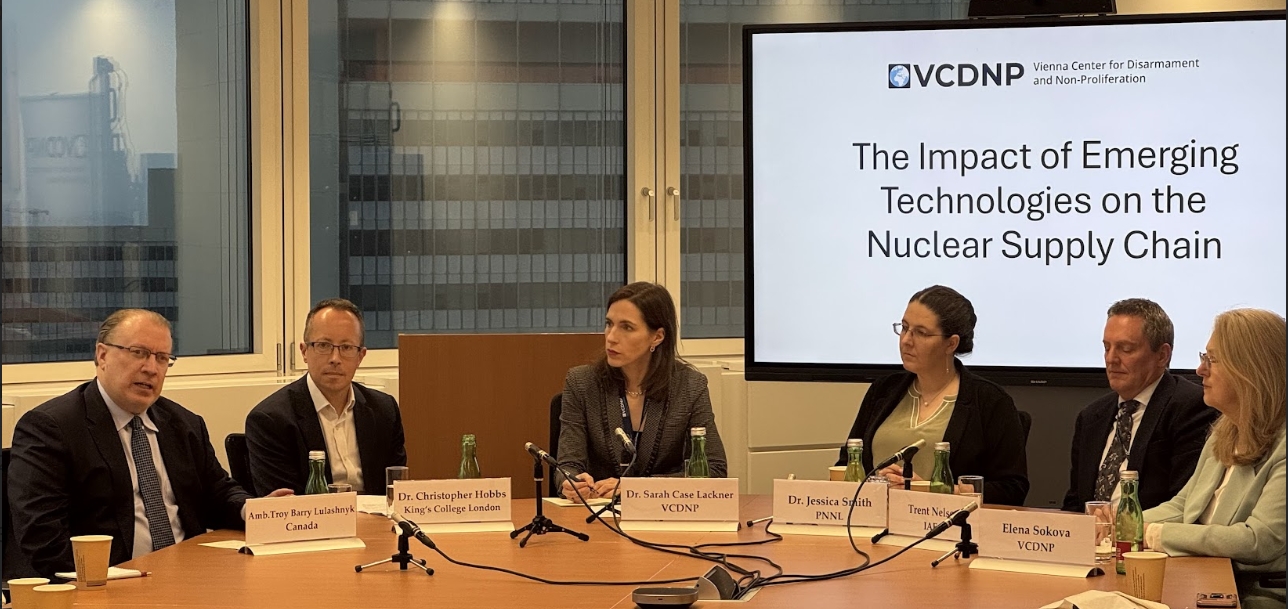
On 16 January 2025, the Vienna Center for Disarmament and Non-Proliferation (VCDNP) convened a panel discussion on “The Impact of Emerging Technologies on the Nuclear Supply Chain.” The event followed a two-day workshop on the same subject. The discussion was sponsored by Global Affairs Canada.
Following the event’s opening by VCDNP Executive Director Elena K. Sokova, participants were welcomed by H.E. Ambassador Troy Barry Lulashnyk, Ambassador of Canada to Austria and Permanent Representative to the International Organisations in Vienna. He highlighted the importance of the nexus of emerging technologies and supply chain security and stressed that, at a time when all nations are grappling with the impact of new and emerging technologies, the nuclear sector is facing the potential of an increase in new builds as well as the necessity of extending the lifetime of existing nuclear power plants well beyond their original design lifespan. Further, with the rapidly changing geopolitical situation, competition is increasingly taking priority over international cooperation.
Against this backdrop, Ambassador Lulashnyk urged greater understanding of the challenges and benefits that emerging technologies will bring, especially for international security, and underlined the need for action to find solutions to build a safer and more secure world.
VCDNP Senior Fellow Dr. Sarah Case Lackner, reinforced this message, underscoring the importance of understanding the intersection of three technical subjects that are now at the top of international headlines: nuclear security, supply chains, and emerging technologies. These formed the background of the panel discussion, featuring:
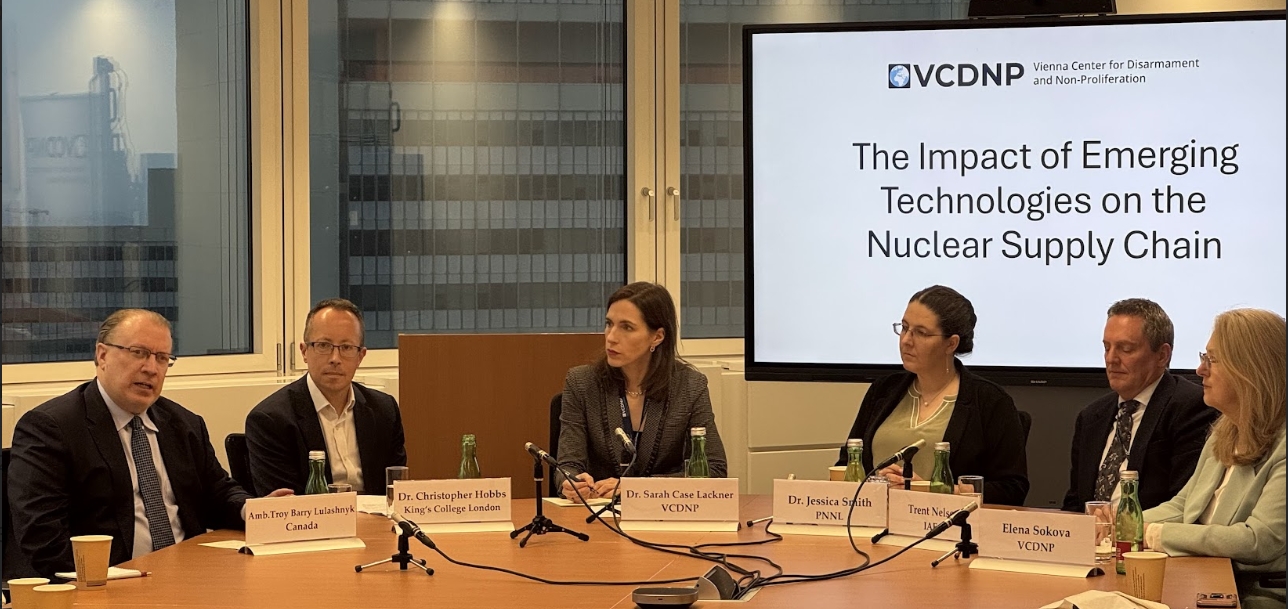
Dr. Case Lackner posed three broad questions to the panellists:
(1) Which technologies are most likely to have the greatest impact on the security of the nuclear supply chain?
(2) What is the impact of new and emerging technologies on the risk landscape for the nuclear supply chain?
(3) What are the opportunities provided by new and emerging technologies for securing the nuclear supply chain?
Dr. Hobbs focused on the impacts of counterfeit items in the nuclear supply chain. He shared examples of how technologies, such as artificial intelligence (AI), could assist malicious actors in infiltrating the supply chain, for example, by creating sophisticated fake company profiles on social media platforms. Among his greatest concerns, he noted the risk that the unchecked adoption of AI tools will present new vulnerabilities and attack routes. However, he also noted that the overall risk to the nuclear supply chain may not necessarily increase, as long as the nuclear sector adopts new technologies with caution.
He also emphasised that the nuclear sector could benefit from lessons learned by other industries that have adopted AI and other emerging tools more quickly, such as aviation. He provided examples of possibilities that new and emerging technologies, such as AI and additive manufacturing, could offer, from forecasting potential supply chain disruptions to improving the detection of counterfeit items and simplifying the procurement of replacement parts, including for aging reactors.
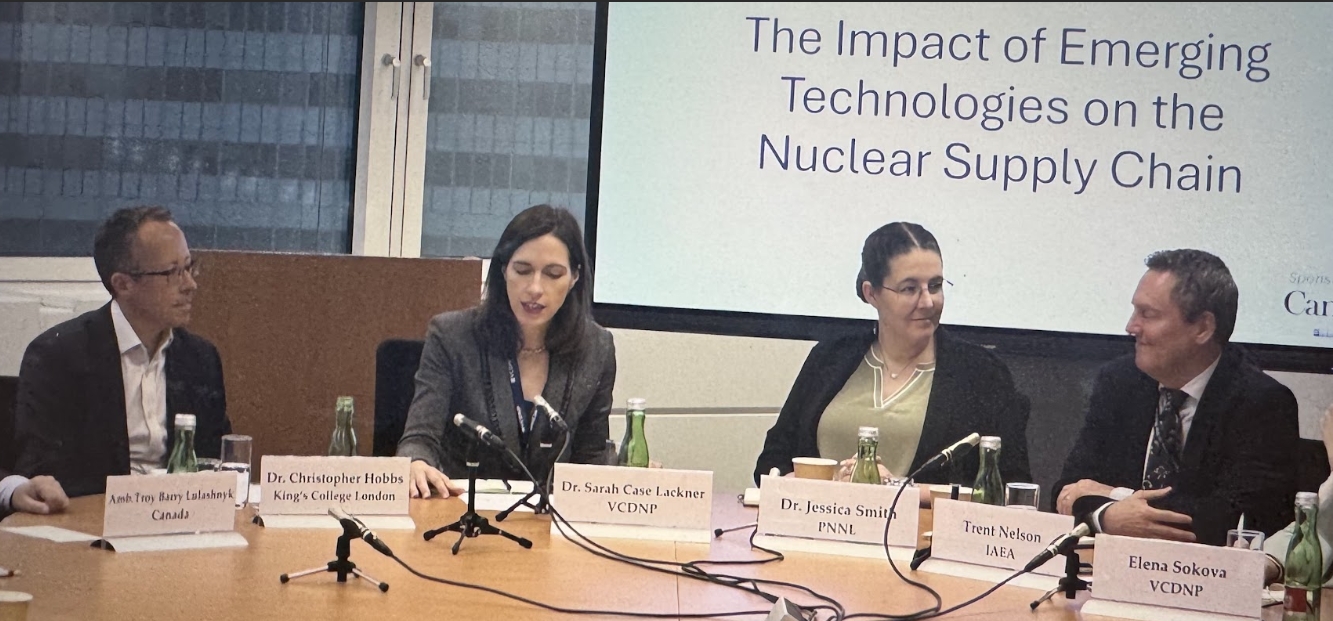
Mr. Nelson highlighted the dual nature of emerging technologies, emphasising that the same technologies and capabilities that could advance nuclear security are also being used by malicious actors. One of his greatest concerns is the digitisation of the supply chain, which has significantly increased nuclear security risks, changing existing threat vectors and potentially adding new ones. He noted that vendor-buyer relationships will need to increasingly incorporate new way to “trust but verify”, as rapidly evolving technologies make it more difficult to prove the true identity of suppliers. To aid in this, new tools, such as blockchain technology, digital fingerprints, real-time monitoring, and big data processing capabilities, could help to develop early warning systems to assist in identifying and mitigating potential threats to the nuclear supply chain.
Dr. Smith stressed the global convergence of supply chains. While supply chains may, on the surface, seem diverse, a closer look reveals high levels of market share concentration, with many suppliers using the same components provided by the same few vendors. This raises concerns about supply chain resilience and may drastically alter the nuclear security risk landscape. Her greatest concerns relates to the human factor, for example, misplaced trust in emerging technologies and their outputs.
At the same time, she stressed that those overly sceptical of new tools could limit the positive impact they may offer. Therefore, Dr. Smith suggested a balanced approach focused on education, awareness, verification, and validation. In this respect, information sharing will be key. Additionally, advancements in verification and validation techniques, including those mentioned by Mr. Nelson, will allow experts to better understand the systems being used. New ways to break open technological “black boxes” will help to enhance trust in new and emerging technologies, such as those that may be adopted in nuclear facilities, including with applications to the supply chain.
Audiences both online and in-person had several questions for the panellists, focused on topics ranging from a culture of privacy in the nuclear sector to emerging technologies for developing countries.
The VCDNP thanks Global Affairs Canada for its support of this event.



